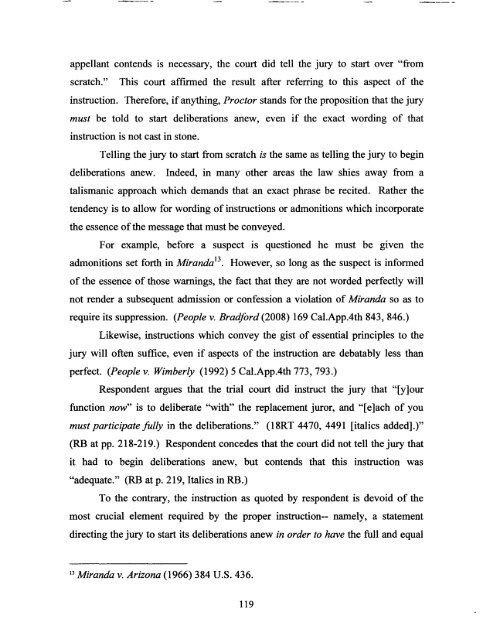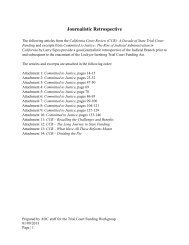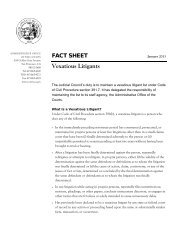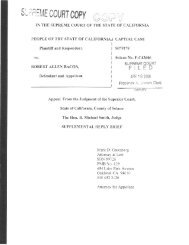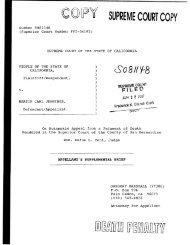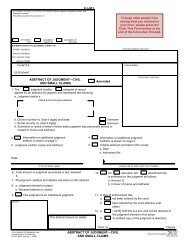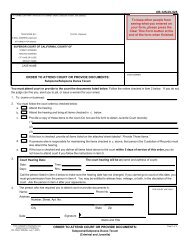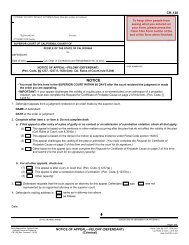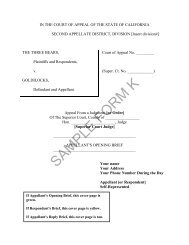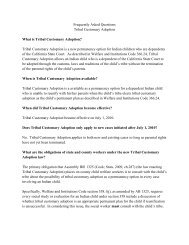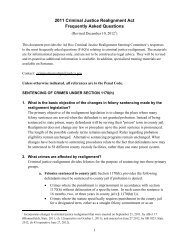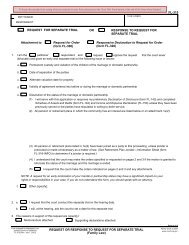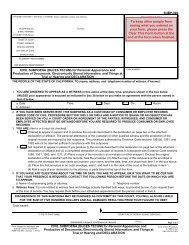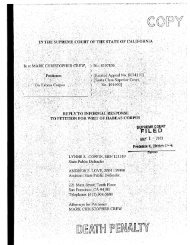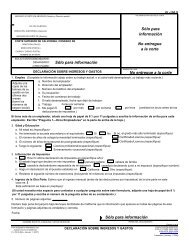Appellant, William Satele, Reply Brief - California Courts - State of ...
Appellant, William Satele, Reply Brief - California Courts - State of ...
Appellant, William Satele, Reply Brief - California Courts - State of ...
Create successful ePaper yourself
Turn your PDF publications into a flip-book with our unique Google optimized e-Paper software.
appellant contends is necessary, the court did tell the jury to start over "from<br />
scratch." This court affIrmed the result after referring to this aspect <strong>of</strong> the<br />
instruction. Therefore, ifanything, Proctor stands for the proposition that the jury<br />
must be told to start deliberations anew, even if the exact wording <strong>of</strong> that<br />
instruction is not cast in stone.<br />
Telling the jury to start from scratch is the same as telling the jury to begin<br />
deliberations anew. Indeed, in many other areas the law shies away from a<br />
talismanic approach which demands that an exact phrase be recited. Rather the<br />
tendency is to allow for wording <strong>of</strong> instructions or admonitions which incorporate<br />
the essence <strong>of</strong>the message that must be conveyed.<br />
For example, before a suspect is questioned he must be given the<br />
admonitions set forth in Miranda 13 • However, so long as the suspect is informed<br />
<strong>of</strong> the essence <strong>of</strong> those warnings, the fact that they are not worded perfectly will<br />
not render a subsequent admission or confession a violation <strong>of</strong> Miranda so as to<br />
require its suppression. (People v. Bradford (2008) 169 Ca1.AppAth 843,846.)<br />
Likewise, instructions which convey the gist <strong>of</strong> essential principles to the<br />
jury will <strong>of</strong>ten suffIce, even if aspects <strong>of</strong> the instruction are debatably less than<br />
perfect. (People v. Wimberly (1992) 5 Ca1.App.4th 773, 793.)<br />
Respondent argues that the trial court did instruct the jury that "[y]our<br />
function now" is to deliberate ''with'' the replacement juror, and "[e]ach <strong>of</strong> you<br />
must participate fully in the deliberations." (18RT 4470, 4491 [italics added].)"<br />
(RB at pp. 218-219.) Respondent concedes that the court did not tell the jury that<br />
it had to begin deliberations anew, but contends that this instruction was<br />
"adequate." (RB at p. 219, Italics in RB.)<br />
To the contrary, the instruction as quoted by respondent is devoid <strong>of</strong> the<br />
most crucial element required by the proper instruction-- namely, a statement<br />
directing the jury to start its deliberations anew in order to have the full and equal<br />
13 Miranda v. Arizona (1966) 384 U.S. 436.<br />
119


